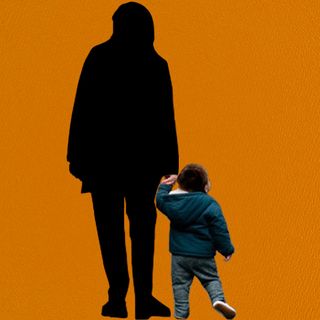
I Convinced My Partner To Have A Baby. Then I Turned 30 And Changed My Mind
“It feels almost criminal to waste a man who is a dad without a baby.”

For as long as I can remember, I’ve been that insufferable, smug, annoyingly sure friend that no one wants around while making decisions that could either alter the course of their lives forever or go up in flames. I was the person with plans, schedules, and timelines, and no one was going to mess with them. No one. Especially when it came to having a baby.
At 15, I knew what I wanted to do with my life. At 18, I knew where I wanted to work. At 28, I knew I wanted a marriage in three years, and a baby in 5. I even had a plan for freezing my eggs, if Plan A, for reasons beyond my control, didn’t work out. I had motherhood neatly penciled into my life’s plan, somewhere between 31 and 35.
As it turned out, my partner and I had foolishly gone and fallen in love without discussing the ‘will we or won’t we’ question regarding children. I realized he didn’t want children after I realized he was The One, and no, I wasn’t willing to let him turn into The One Who Got Away.
We spent two years negotiating the best and worst case scenarios. His disinterest in fathering a child was primarily because of the templates of modern parenting around us. His male friends couldn’t stop bemoaning the monotony of their lives as husbands, and then fathers, while their wives grew annoyed with their inability to make even the smallest baby-related decision on their own. But imagining a family together brought us closer in a way I hadn’t anticipated. It made us keenly aware of all the things we had in common, and the many we had diametrically opposing views on. By the end of two years, he couldn’t wait to be a dad. He now wanted two babies, instead of one.
Then I turned 30, and it was like a switch was flicked off in my brain, and suddenly I wanted no babies, while he tried to convince me that two is better than one.
It’s hard to pinpoint any one reason for my change of heart – it wasn’t the result of one big reason, but the culmination of several small ones. For me, 30 was the age when I started doing the actual math of motherhood. In India, women can earn anywhere between 15 to 26% less than men in the formal labor force, despite comparative qualifications. Even if men and women start their careers with roughly the same salaries, over the course of their lifetime, women earn about 20% less than men, if they earn at all, that is. Because, other research shows that 43% women stop working, either indefinitely or permanently, after giving birth. No matter how involved and equal he was going to be as a parent, there was no escaping the fact that I was the one who was going to be penalized.
It wasn’t that I was clueless – I knew that children hurt women’s careers – but knowing that on a conceptual level was very different from having cold, hard numbers staring at me from a paper. Add to that the cost of raising a child in India, conservatively, is about Rs 1,700,000, at a 6% inflation rate.
The more I read and researched arguments for and against parenting, the more I started to question it on a fundamental level. Research has shown that combining genetic material helps the human species evolve by making it less prone to diseases, but that still doesn’t explain the need to have one’s DNA preserved and passed on, like it’s some national treasure. Is the need to see our own features and personalities reflected back at us in the form of a little person some primal instinct, or just vanity?
I’ve wondered, endlessly, if my former need to parent a child (not reproduce, because adoption was always on the table) was, in fact, just the need to tell the world how much better than everybody else I was going to raise a baby. When you’ve spent your whole life believing you were meant for something, it’s uncomfortable to find yourself questioning the origin of its premise. I wondered if my baby fever was my brain’s way of pretending that it was responding to some kind of biological imperative, instead of the far more unglamorous explanation that I was, quite simply, responding to a conditioned, internalized terror of an arbitrary fertility deadline.
My internal monologue aside, my partner is now practically oozing with the qualities that make a perfect dad. In a world full of men who are helpless around their own spawn, and pat themselves on the back for “babysitting” their own progeny, it feels almost criminal to waste a man who is a dad without a baby.
The silver lining to this impasse is, we both know, implicitly, that having or not having a child is secondary to being together. It has never been a deal-breaker. I know that if the choice was between being a dad or being my partner, he’d pick me, every time. And if he wanted a baby so much that I was forced to choose between him and childlessness, I’d pick him, without question.
It’s an awkward, uncharted territory for us, but at least I’m secure in the knowledge that there is no one else in the world I’d rather be in this emotional circus with. We don’t have answers yet, but I’m hoping it won’t take us another two years to arrive at one.
Sonali Kokra is a writer from Mumbai. She writes primarily on women's issues, relationships, culture, and lifestyle. In addition to writing, for the past 10 years, she has been attempting to make round chapattis at her mother's insistence. Currently, she is weirdly obsessed with smocks with pockets.
Related


Many Indian Schools Post Photos of Kids on Public Accounts Without Parental Permission
